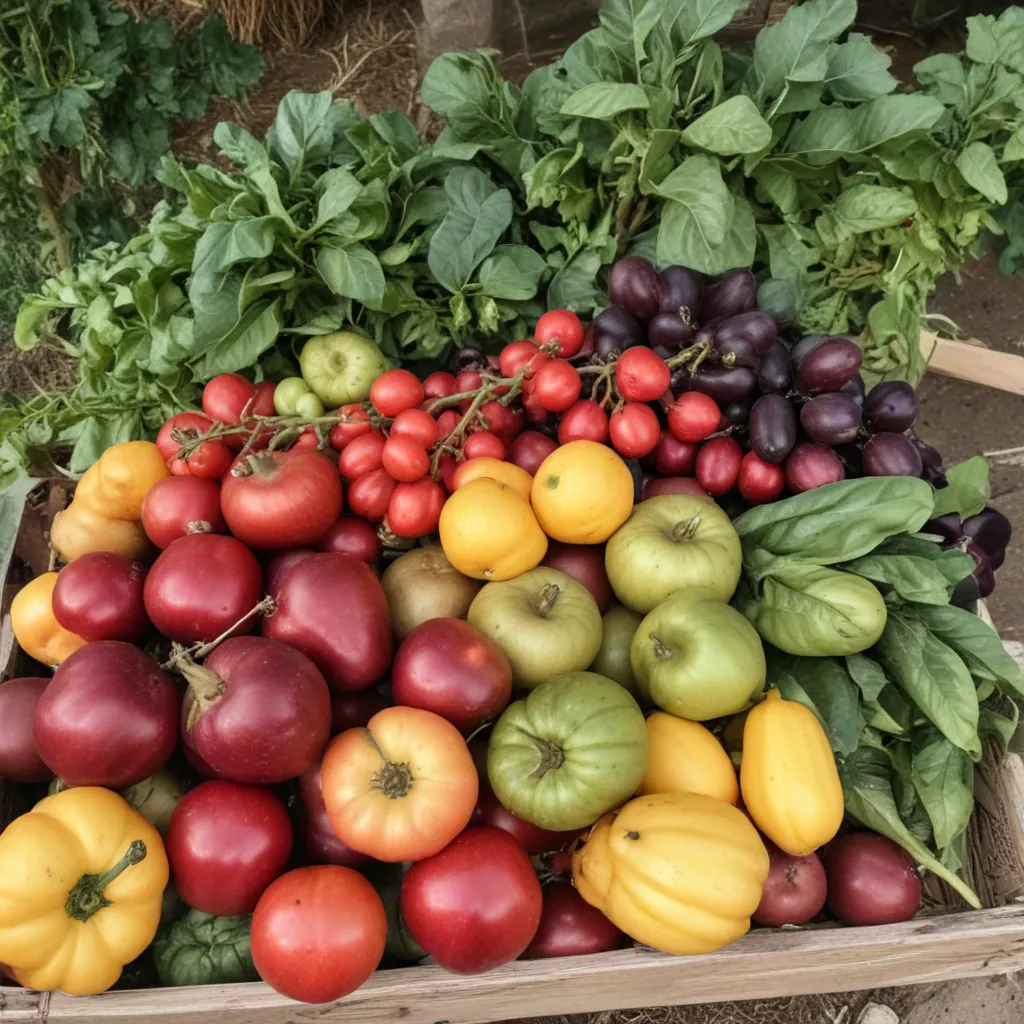
As the air turns crisp and the leaves begin to change, the bounty of the season arrives at Crooked Pines Farm. Our fields are brimming with root vegetables, winter squash, and a vibrant array of cold-hardy greens. While these hearty crops thrive during the colder months, the true challenge lies in preserving their freshness and flavor to savor long after the harvest.
At Crooked Pines, we believe in making the most of nature’s gifts. Preserving seasonal produce is not only a practical solution to enjoy homegrown goodness year-round, but it’s also a way to connect with the land, reduce food waste, and cultivate a deeper appreciation for the rhythms of the farm. Join us as we explore the art of preserving the harvest and discover how you can bring the flavors of the season to your table, even in the depths of winter.
Harvesting and Gathering
As the days grow shorter and the temperatures drop, it’s time to shift our focus to the winter harvest. Unlike the abundance of summer, the colder months offer a more select yet equally delightful array of produce. From the earthy sweetness of beets to the crisp, juicy crunch of apples, these resilient crops thrive in the cool climate and provide a wealth of nourishment.
To make the most of the harvest, it’s essential to identify the seasonal crops and learn the proper techniques for harvesting and handling them. Our farm team carefully monitors the growth and maturity of each plant, ensuring they are picked at the perfect moment to capture their peak flavor and nutritional value. By following these best practices, we can extend the life of our produce and prepare it for preservation.
Preservation Methods
Once the harvest is gathered, the real work begins. Preserving seasonal produce is a time-honored tradition that allows us to savor the flavors of the farm long after the growing season has ended. At Crooked Pines, we employ a variety of preservation techniques to suit the unique characteristics of each crop.
Canning and Jarring are among the most popular methods, allowing us to capture the vibrant colors and robust flavors of fruits and vegetables in shelf-stable jars. From tangy dill pickles to sweet apple butter, these preserved items can be enjoyed throughout the winter months, adding depth and complexity to our meals.
For delicate produce like leafy greens and tender herbs, dehydration and drying are the perfect solutions. By carefully removing the moisture, we can create nutrient-dense dried herbs, vegetable chips, and fruit leathers that make for convenient, healthy snacks.
Another favorite technique is pickling and fermenting, which not only preserves the produce but also introduces beneficial probiotics to our diet. Whether it’s spicy kimchi or tangy sauerkraut, these fermented delights add a unique twist to our seasonal dishes.
Recipes and Meal Planning
With our pantry brimming with preserved produce, the possibilities for seasonal cooking are endless. We love to incorporate these homemade treasures into our favorite recipes, transforming simple dishes into flavorful masterpieces.
For breakfast, try stirring apple butter into your oatmeal or blending frozen berry puree into a smoothie. Lunch can feature a vibrant beet and carrot slaw or a hearty potato and kale soup made with canned vegetables. And for dinner, consider a roasted winter squash stuffed with a savory quinoa and herb filling, or a sautéed greens side dish enhanced with pickled onions.
By planning our meals around the preserved ingredients, we can ensure that the taste of the farm is present in every bite, even when the snow is falling outside.
Pantry Organization
Maintaining a well-stocked pantry is key to making the most of our preserved produce. At Crooked Pines, we take great pride in keeping our shelves and storage areas meticulously organized, ensuring that our treasures remain fresh and accessible.
We carefully inventory our canned goods, dried items, and fermented delights, regularly rotating stock to prioritize the oldest items. By implementing efficient storage solutions, such as airtight containers and temperature-controlled environments, we can extend the shelf life of our preserved foods and minimize waste.
Sustainability and Waste Reduction
Embracing the harvest and preserving seasonal produce aligns perfectly with our commitment to sustainable and eco-friendly practices at Crooked Pines. By supporting local agriculture, minimizing food miles, and reducing waste, we are actively contributing to a healthier, more resilient food system.
Our farm-to-table approach allows us to enjoy the freshest, most nutrient-dense produce, while our preservation techniques ensure that nothing goes to waste. Rather than letting excess crops rot in the field, we transform them into shelf-stable items that can be enjoyed for months to come.
Community Engagement
Preserving the harvest is not just a solitary endeavor – it’s a way to connect with our fellow farmers, neighbors, and community members. At Crooked Pines, we love to share our knowledge and passion for seasonal eating, hosting educational workshops and preservation demonstrations throughout the year.
Whether it’s a canning class for aspiring home preservers or a fermentation workshop for gut health enthusiasts, these events allow us to engage with our community, exchange recipes and techniques, and cultivate a deep appreciation for the bounty of the land.
By fostering these connections, we not only strengthen our local food system but also create lasting memories and traditions that will be passed down for generations to come.
As the seasons change and the harvest cycle continues, the team at Crooked Pines Farm remains steadfast in our commitment to preserving the flavors of the land. From the crisp, autumn apples to the hearty, winter greens, we are dedicated to making the most of nature’s gifts, ensuring that our pantry and our plates are always vibrant, nourishing, and full of the essence of the farm. Join us in this delicious journey of embracing the harvest and savoring the year-round bounty of Crooked Pines.


